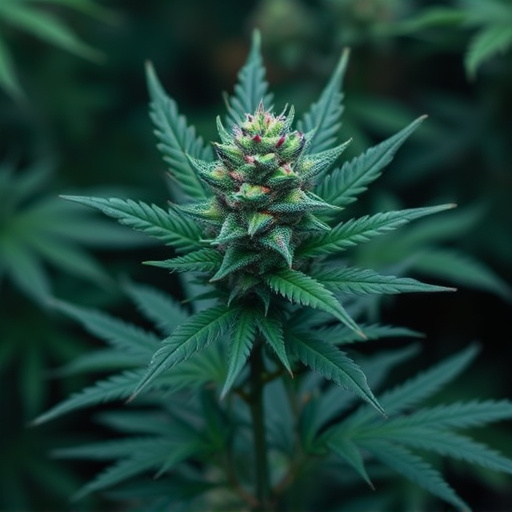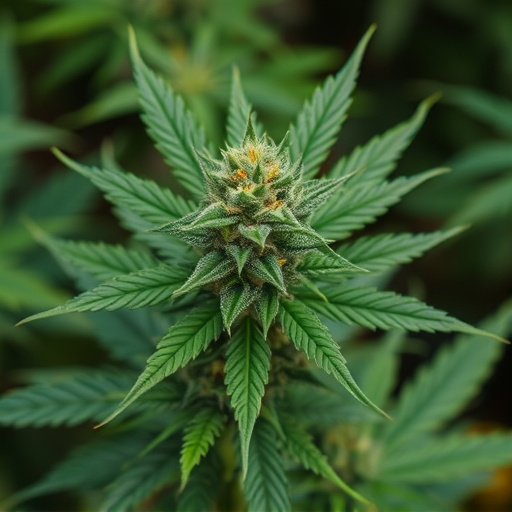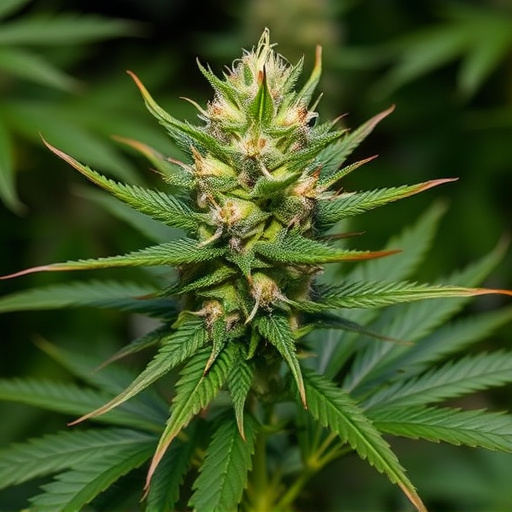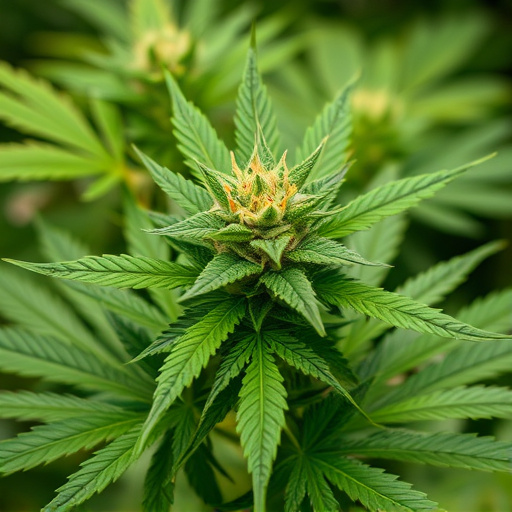Cannabidiol (CBD), a non-intoxicating cannabis compound, offers therapeutic benefits through interaction with the body's endocannabinoid system. CBD-dominant medical strains, cultivated with high CBD to THC ratios, can manage chronic pain, alleviate anxiety, and reduce epilepsy seizures without altering mental state. These strains are gaining prominence as promising alternatives to traditional pharmaceuticals for conditions like arthritis, multiple sclerosis, and anxiety disorders due to their anti-inflammatory and anxiolytic properties.
“Unraveling the power of CBD-dominant strains: a game-changer in the realm of medical cannabis. Cannabis, known for its diverse compounds, offers more than just its infamous THC counterpart. This article delves into the science behind CBD-rich strains and their significant role in providing therapeutic benefits without the psychotropic effects.
We explore how these medical strains can alleviate various conditions, making them a promising alternative in today’s health landscape.”
- Understanding CBD and Its Role in Cannabis
- The Science Behind CBD-Dominant Strains
- Medical Applications of CBD-Rich Cannabis Strains
Understanding CBD and Its Role in Cannabis
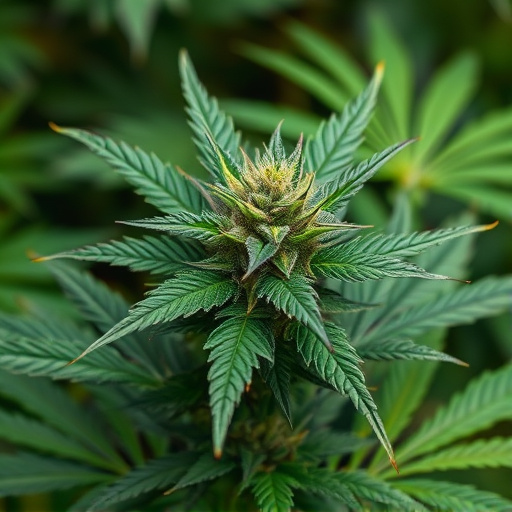
Cannabidiol (CBD) is a non-intoxicating chemical compound found in the cannabis plant, playing a pivotal role in the overall therapeutic effects of medical strains of cannabis. Unlike tetrahydrocannabinol (THC), CBD does not produce a ‘high’ and has gained significant attention for its potential health benefits. It interacts with the endocannabinoid system, a complex network within the body that regulates various physiological processes, including pain perception, mood, and appetite.
In medical strains of cannabis, high concentrations of CBD can offer a range of therapeutic advantages. Its anti-inflammatory properties make it potentially effective in managing chronic pain, while its anxiolytic effects may provide relief from anxiety and stress. Moreover, CBD has shown promise in treating epilepsy, with certain strains offering substantial reductions in seizure frequency. The versatility of CBD makes it an appealing component for medical applications, contributing to a more balanced and therapeutic experience without the mind-altering effects often associated with cannabis consumption.
The Science Behind CBD-Dominant Strains
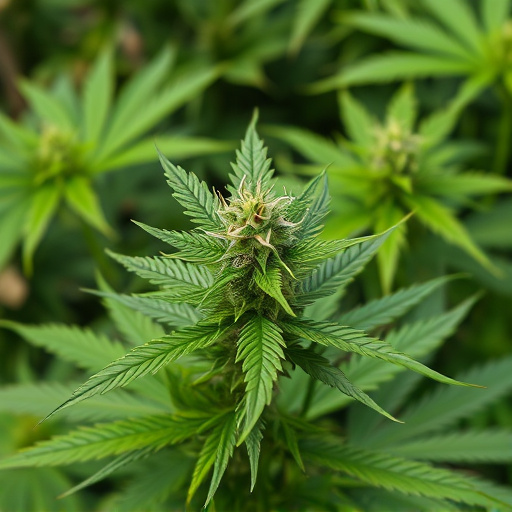
The science behind CBD-dominant strains revolves around the role of cannabidiol (CBD), one of over 100 cannabinoids found in cannabis plants. Unlike tetrahydrocannabinol (THC), which is known for its psychoactive effects, CBD does not produce a “high.” Instead, it interacts with the body’s endocannabinoid system (ECS), a complex network of receptors and enzymes that regulate various physiological processes including pain, inflammation, mood, and appetite.
CBD-dominant strains are cultivated to have a higher concentration of CBD compared to THC. This balance offers potential therapeutic benefits without the mental or cognitive impacts associated with THC dominance. Research suggests that CBD can act as an anti-inflammatory, antianxiety agent, and analgesic, making medical strains of cannabis with elevated CBD levels promising for managing conditions like chronic pain, anxiety disorders, and certain skin conditions.
Medical Applications of CBD-Rich Cannabis Strains
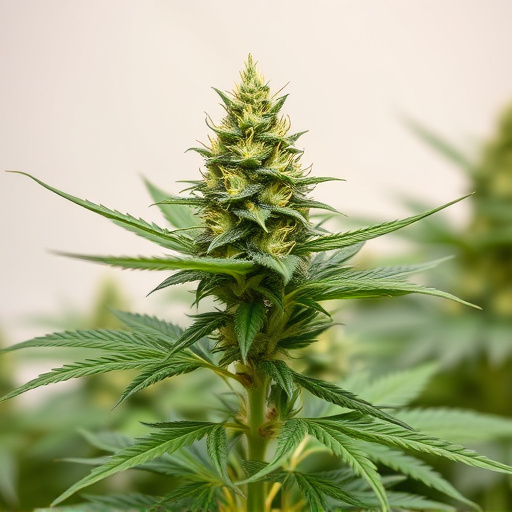
Cannabis strains rich in cannabidiol (CBD) have gained significant attention for their potential medical applications, offering a promising alternative to traditional pharmaceuticals. Unlike tetrahydrocannabinol (THC)-dominant strains known for their psychoactive effects, CBD-rich strains provide a range of therapeutic benefits without the mental altering properties. These medical strains are particularly beneficial in managing chronic pain, anxiety, and inflammation.
The non-psychoactive nature of CBD allows it to interact with the body’s endocannabinoid system, which plays a crucial role in regulating various physiological processes, including mood, memory, sleep, and immune response. Research suggests that CBD can act as an anti-inflammatory agent, reducing swelling and pain associated with conditions like arthritis and multiple sclerosis. Additionally, its anxiolytic properties make it effective in treating anxiety disorders, offering a natural remedy for those seeking to avoid the side effects of conventional anti-anxiety medications.
CBD-dominant strains of cannabis offer a promising avenue for those seeking the therapeutic benefits of medical strains without the intoxicating effects of THC. By understanding the science behind these strains and their unique composition, we can unlock a world of potential for managing various health conditions. As research continues to evolve, the role of CBD in holistic wellness is sure to gain even more prominence, shaping the future of medical cannabis treatments.









